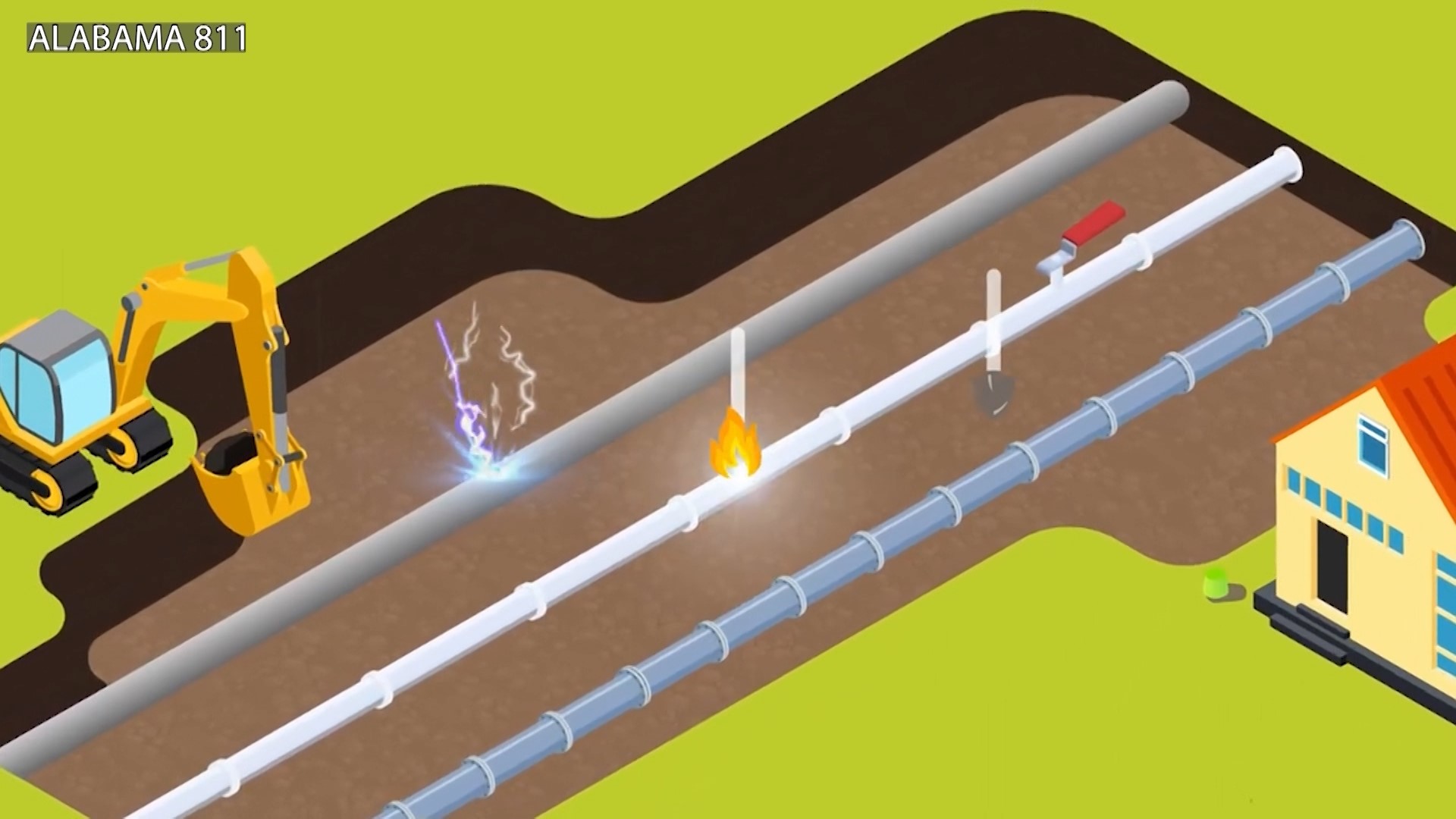DECATUR, Ala. — If you're planning on doing a little landscaping around the house like install a mailbox, water feature or any other project that requires digging, Decatur Utilities is asking you to make one simple phone call before you start. "You don't know where those lines are so if you go start digging on your property, if you dig into a water line, you get a mess, because obviously the water is going to leak," said DU Communications and Public Relations Coordinator, Joe Holmes. " If you dig it into electric line or natural gas line, that's a life-threatening situation. It can put your life in danger of serious injury and then across the board, if you damage those facilities, we had to come out and fix them."
811 is a national number established to contact notification centers to have underground facilities located prior to the start of excavation work. When you dial 811, dependent on your location, you will be directed to the appropriate 811 center for where you are. Anyone who plans to dig should contact 811 or go to their state 811 center’s website before digging to request that the approximate location of buried utilities be marked with paint or flags so that you don’t unintentionally dig into an underground utility line.
"So, the biggest thing is the reason 811 is there, that is a statewide service that will coordinate what we call line locates for all local utilities," said Holmes. "So, if you live in the city of Decatur and you call 811, they'll notify us to come out and identify any underground electric lines, natural gas lines, water or sewer lines but then they'll also contact other utilities."
While yard work can be fun, it can also be life threatening. "If you come in contact, if you've got a shovel and you come in contact with an electric line, you break through the conduit and come in contact with it, that can be deadly," said Holmes. "It can cause life threatening injuries. Natural gas, you can cause an explosion. That gas begins to escape. so, if you are if you've got those lines, mark, you're going to want to dig away from them."
For you 'do it yourself-ers', there is no sure way to know what's beneath. "Those lines are buried, obviously, for a reason to keep them from coming in contact with it," said Holmes. "You know, you may have a rough idea of where your sewer line goes or your water lines come in, but you don't know where you can dig safely."
Doing so blindly can cost you...literally. "If you damage those facilities, we have to come out and fix them, then that bill is going to be passed along to the homeowner. Plus, you can interrupt service to all your neighbors and yourselves," said Holmes.
Holmes also shares that making that call can help you plan a little better. If you were going to plant a plant and it's right there where that line is, you need to move the plant somewhere else. or if you're putting up a mailbox and you see the lines right there in the right of way, move it over, too, so that you're not going anywhere, anywhere near those lines," said Holmes. "The reason that they were organized and created was to be able to get that information to consumers, so they know where those lines are and they're not putting themselves in danger and not destroying the infrastructure that's out there.

